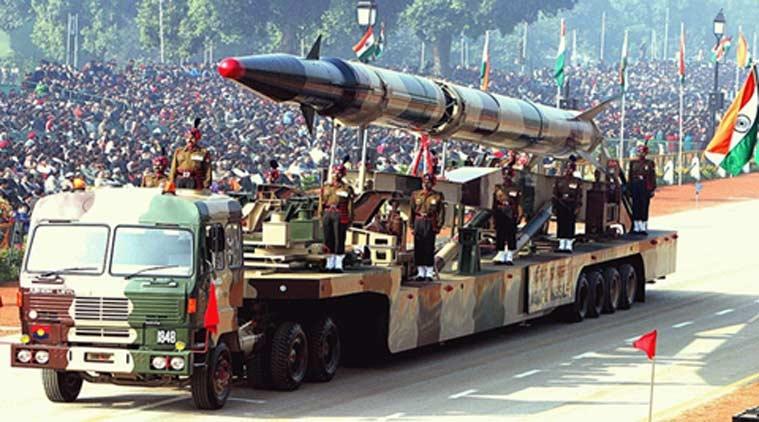Government Scraps Weapon Development Subsidy

Image Courtesy : Indian Express
The BJP-led NDA government has decided to scrap the “Make” procedure by which private Indian firms design “high technology, complex systems”, as the government –
Ministry of Defence (MoD) – bankroll their development costs.
The move was announced on Tuesday, at a press conference called by Defence Minister Nirmala Sitharaman, which was intended to highlight the achievements of her ministry. The projects, which were earlier in the “Make” category, will now be moved to another pre-existing category, “Make 2” where the firms will have to bear their own costs.
What does this mean for ongoing projects?
Among the projects which will be affected immediately, is the one to develop a Future Infantry Combat Vehicle (FICV). The FICV project was intended to replace the Army’s ageing fleet of Soviet era BMP-2 infantry combat vehicles. This is a project which has been delayed for long – having already been tendered twice in 2010 and 2015. Apparently the lowest bid is in the FICV tender is about Rs.800 crores, and now this considerable amount will have to be borne by the private defence firms.
Business Standard has reported that the firms which are now interested in carrying out the project are the ones whose bids were eliminated from the original bidding process. These include Reliance Defence, Rolta and Tata Power (SED). This raises the question of whether the quality of the vehicle may be reduced as now only those who were deemed incapable of developing it are interested.
What does this mean for “Make in India”?
The government’s move certainly has repercussions for its flagship “Make in India” program. Firstly, this appears to be a sudden knee-jerk move. What this does is to make the private defence firms lose their faith in the government. Any market requires a measure of stability and such knee-jerk reactions are certainly prone to making the parties lose their interest in the market.
More importantly, this move is an indictment of the neoliberal ideology, which is followed by this government and also the previous UPA government. There has been a concerted push towards encouraging the private players to enter the defence industry, and at the same time neglecting the public sector. Even the entry of foreign private entities along with the domestic ones has been brought about through the Foreign Direct Investment (FDI) process. However, what this move is indicative of, is that their neoliberal policies have fallen flat when it comes to the defence sector.
The fact is that army has had a requirement for the FICV for a very long period, and the private sector has simply been incapable of catering to this requirement. The Modi government, for all its vigorous rhetoric about making India self-reliant in the defence industry, has utterly failed in this regard. It is also telling that the government is not able to live up to its own ideology.
What does this mean for the Armed Forces?
This move will result in the armed forces having to wait even longer for the long overdue upgrades that they require in their equipment. This is another spanner in the works of the process of modernisation. The ageing equipment that the army will have to use may compromise the nation’s security.
This may also have an impact on the forces’ war-preparedness. Already, the army’s state of defence preparedness is at a worrying level. The army’s ammunition stock is not enough to last for ten days of intense fighting, let alone the required level of 30 days.
The government had proposed to deal with this issue by bringing the private players in, to manufacture the required amounts to deal with the shortage of ammunition. But, moves like the present one only discourage the private sector from entering into such projects.
What then happens is that the government has to go in for emergency procurement. This means that the government will procure the required equipment/ammunition/vehicles on an immediate basis, from foreign manufacturers, usually for a very high price. In such a procedure, the payment of cash is also done upfront, as opposed to the normal process of staggered payments. What this results in is a drain in funds from the government’s coffers and a furthering of the government’s reluctance to invest in the army’s modernisation processes.
Ultimately, this move is an indictment of the Modi government and the neoliberal policies. The government has failed in implementing its policies as the policies themselves are flawed. What the public must ask is whether their nation’s security must be sold out to the market.
Get the latest reports & analysis with people's perspective on Protests, movements & deep analytical videos, discussions of the current affairs in your Telegram app. Subscribe to NewsClick's Telegram channel & get Real-Time updates on stories, as they get published on our website.
























